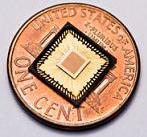What's in the News?
What I would like you to do is to start applying what we are learning in class to real world matters. Some might ask, "What good is learning psychology if we can't apply it to real world matters?" So that is what we are going to do with this divergence assignment.
What I would like you to do is to either go to NPR (http://www.npr.org/ ) or the BBC (http://www.bbc.co.uk/ ) and read, watch, or listen to something that is interesting to you and relates to what we have been learning in the class.
Please respond the blog by telling us what the piece you chose was and why you picked it (what made it interesting for you)? What did you expect to see? What did you find most interesting about the piece?
Next discuss how it relates to the class using terms, terminology, and concepts that we have learned so far in class.
Include the URL in your post.
Make a list of key terms and concepts you used in your post.
Let me know if you have any questions,
--Dr. M








Recent Comments